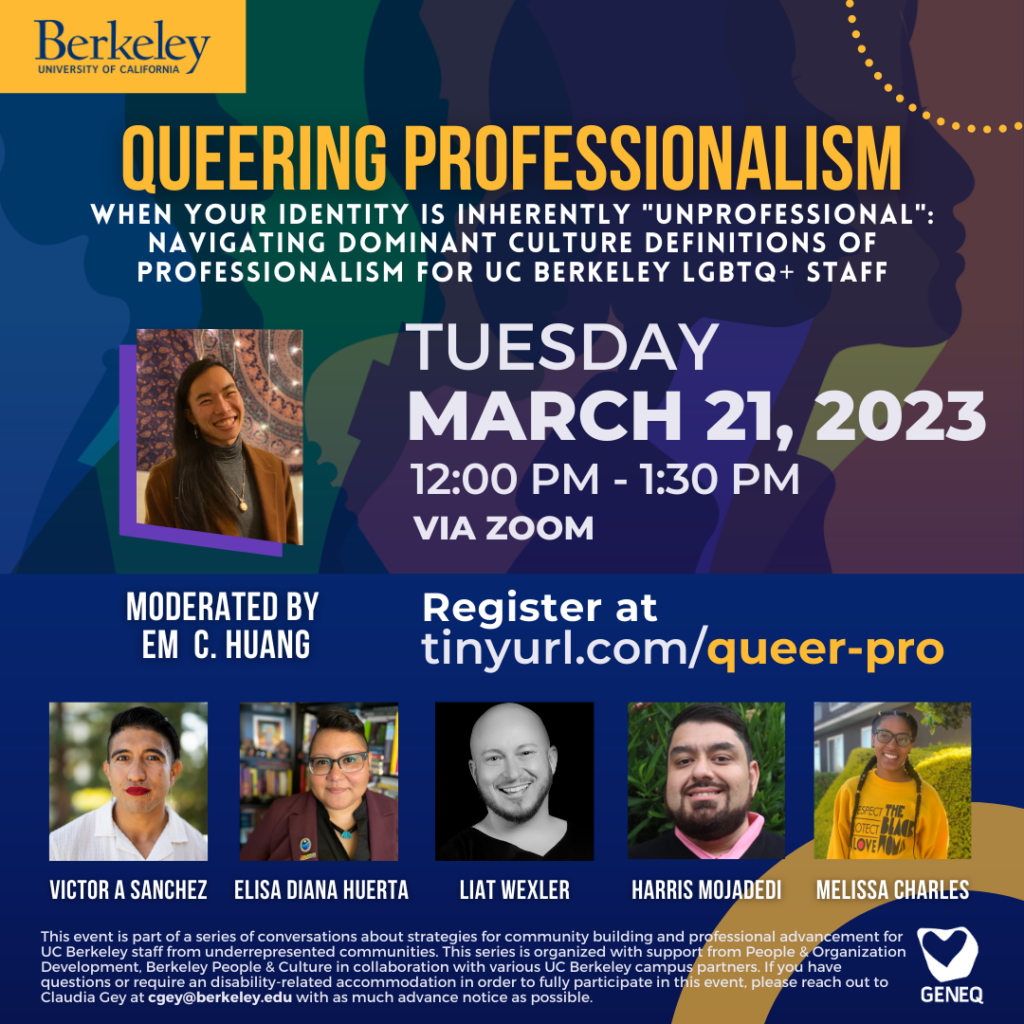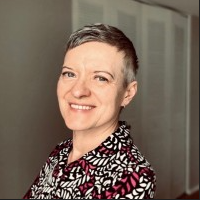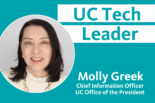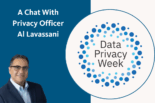The UC Berkeley is hosting a panel discussion around professional advancement and community-building for UC staff from underrepresented communities on “When your identity is inherently ‘unprofessional'”: Navigating dominant culture definitions of professionalism for LGBTQ+ staff on Tuesday, March 21, 2023 from 12:00pm – 1:30 p.m.
This 1.5 hour online will highlight the experiences of UC Berkeley staff who identify as LGBTQ+. Our guest speakers will discuss the barriers they face in the workplace and provide strategies on how to navigate common ideas of professionalism. They will also explore what effective approaches to community-building could look like for LGBTQ+ staff to access support and collaborate on creating a culture that supports authenticity, humanity and access to opportunities and advancement for all.
Event details
“When your identity is inherently ‘unprofessional’” – Navigating dominant culture definitions of professionalism for LGBTQ+ staff [Registration link]
Tuesday, March 21, 2023, 12 p.m. – 1:30 p.m.
Host: UC Berkeley
Panelists: Melissa Charles, Elisa Diana Huerta PhD, Harris Mojadedi, Victor A. Sanchez and Liat Wexler; Moderator: Em C. Huang (see bios.)
Contact: Claudia Gey, Program Manager at UC Berkeley, Institute of International Studies Center on the Politics of Development cgey@berkeley.edu.
*Professionalism relates to how we are expected to dress/present, talk and behave in the workplace. Standards of professionalism were created by and for white, cishetero men and are manifesting in work cultures of perfection, conformity, and homogeneity. Professionalism is also deeply rooted in binary concepts of gender and used as an exclusionary tool. Those who don’t fit the mold, often don’t get hired, recognized and promoted. In addition, dealing with microaggressions and overt discrimination comes at a high cost including the ‘emotional tax’ paid for constantly being on guard to self-protect.

About the Author:
Claudia Gey

University of California, Berkeley, Institute of International Studies
Center on the Politics of Development







